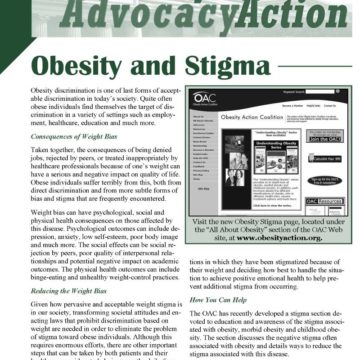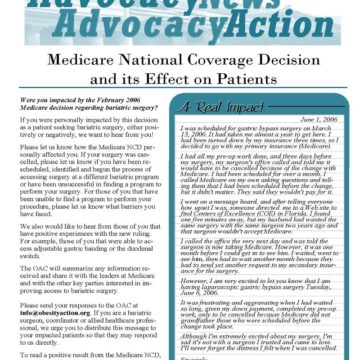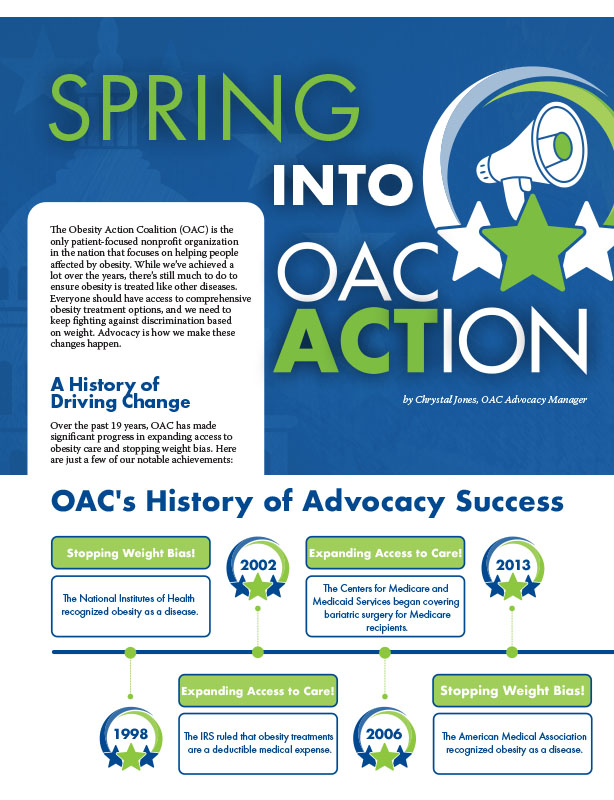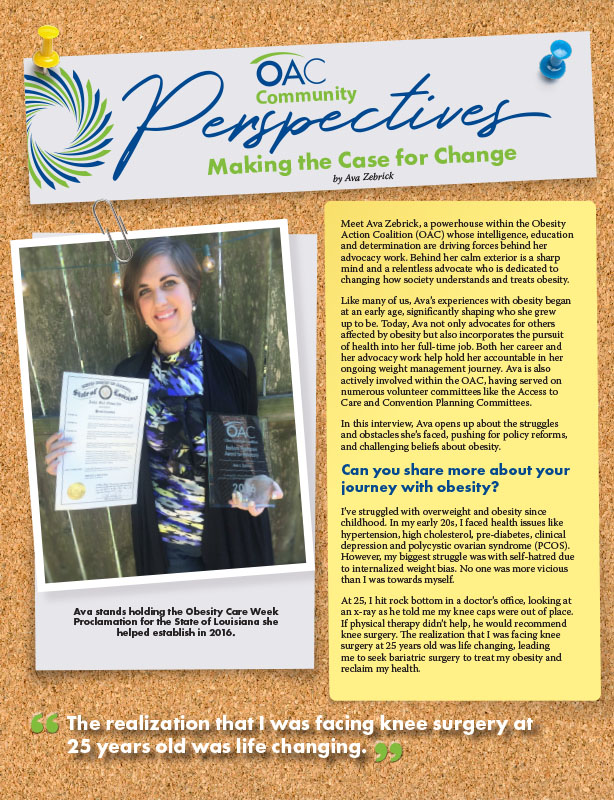The Importance of Post-Treatment Patient Advocacy


Fall 2006
Why Is It Important to Advocate?
As you know, advocacy is the act of pleading or arguing in favor of something, such as a cause, idea or policy, and all those who were affected by obesity at one point in their lives need to continue to advocate for access to treatment for the millions of individuals still affected by this disease.
As stories about obesity and morbid obesity continue to become more prevalent in the media, many times they contain negative publicity about weight-loss therapies. For instance, in recent months, weight-loss surgery received a large amount of negative national media attention; however, very few weight-loss surgery patients responded with their positive stories.
It is important that all those who have received treatment voice their stories to the media, congress and anyone else who will listen. Positive stories demonstrate to the general public that access to treatment improves patients’ overall quality of life and health.
Where can I start to advocate?
The Obesity Action Coalition (OAC) encourages proactive advocacy by focusing attention in the following areas:
- Legislators
- Government Employees
- Employers
- Insurers (This is an important one! If your therapy was covered by your insurance provider, voice your opinion and let them know the differences it has made in your life.)
- Media (If you see a negatively focused weight-loss treatment article in your community, respond to it. Write your response to the editor and author of the article. Urge them to publish your article as well to show both sides.)
- General Public
What if I don’t know how to write my own story?
Not a problem, the OAC offers many tools for you to become an effective advocate, such as its advocacy guides, state guides, tips and hints on writing your legislators, employers, insurers and much more.
What should I say?
- Share your personal story of how obesity has impacted your life.
- Many times we are told by patients that they feel they have been given a second chance at life because of the many simple and important tasks they can now accomplish, such as tying their shoes or playing with their children. If you have successfully treated your obesity through bariatric surgery or other obesity management services, share your methods and highlight your quality of health and life improvements.
Conclusion:
Post-treatment advocacy is extremely important to build awareness of the positive effects of weight-loss treatments and to ensure access to care for all those affected by this disease.
You must continue to “Raise Your Voice” and build proactive relationships with influential decision makers by telling them your positive stories dealing with weight-loss treatment options. Only then, will they be aware of and understand the true impact of access to care for the millions affected by obesity.
The OAC urges you to share your story and illustrate the impact that treatment has had on your overall health. Your letters, phone calls and e-mails make a tremendous difference. If you haven’t already done so, please “Raise Your Voice” and start advocating today.
by Kendall Griffey, OAC Communications Manager Spring 2024 We have officially kicked off Your Weight Matters Regional…
Read Articleby Chrystal Jones, OAC Advocacy Manager Spring 2024 The Obesity Action Coalition (OAC) is the only patient-focused…
Read Articleby Ava Zebrick Spring 2024 Meet Ava Zebrick, a powerhouse within the Obesity Action Coalition (OAC) whose…
Read Article









